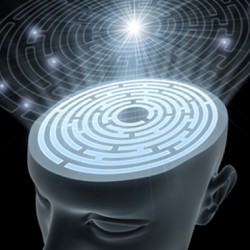By Helen Figueira
December 5, 2011
Time to read: 3 minutes
 CSC Virtual Lab inspires the next generation of scientists
CSC Virtual Lab inspires the next generation of scientists
Virtual Lab, the CSC’s interactive educational initiative that gives school-aged students the opportunity to engage with real data through a web-based interface, has just launched a new online experiment Do Rats Need Maps? The experiment has been devised by Dr Hugo Spiers of the UCL Institute of Cognitive Neuroscience. Dr Spiers worked with CSC PEMG Facility Education and Training Officer Emma Newall and Video Specialist Richard Newton to create a movie-based dataset and interactive platform, which stretches students’ imaginations and skills as young scientists assessing real, untested data.
“The video aspect lends an entirely new dimension to Virtual Lab,” comments Emma on the new experiment. Previous successful pilot experiments allowed students to engage with real research, but the images that made up the experimental results were static.
Dr Spiers’ work is all about movement, because his work focuses on navigation. He wants to understand how the brain constructs a mental map of the world from sensory input and memory. The techniques he uses range from brain imaging and neuropsychological testing to virtual reality and eye-tracking. He has studied the brains of London’s cabbies, but in this new experiment he is interested in how rats use visual cues to help navigate towards a goal.
“It’s really important that school students have the chance to work with real research and interact with practising scientists,” says Dr Spiers, “– in helping with this analysis, students provide a fresh pair of eyes and may even notice things I don’t”.
CSC Virtual Lab inspires the next generation of scientists
Virtual Lab, the CSC’s interactive educational initiative that gives school-aged students the opportunity to engage with real data through a web-based interface, has just launched a new online experiment Do Rats Need Maps? The experiment has been devised by Dr Hugo Spiers of the UCL Institute of Cognitive Neuroscience. Dr Spiers worked with CSC PEMG Facility Education and Training Officer Emma Newall and Video Specialist Richard Newton to create a movie-based dataset and interactive platform, which stretches students’ imaginations and skills as young scientists assessing real, untested data.
“The video aspect lends an entirely new dimension to Virtual Lab,” comments Emma on the new experiment. Previous successful pilot experiments allowed students to engage with real research, but the images that made up the experimental results were static.
Dr Spiers’ work is all about movement, because his work focuses on navigation. He wants to understand how the brain constructs a mental map of the world from sensory input and memory. The techniques he uses range from brain imaging and neuropsychological testing to virtual reality and eye-tracking. He has studied the brains of London’s cabbies, but in this new experiment he is interested in how rats use visual cues to help navigate towards a goal.
“It’s really important that school students have the chance to work with real research and interact with practising scientists,” says Dr Spiers, “– in helping with this analysis, students provide a fresh pair of eyes and may even notice things I don’t”.
The experiment is now live at www.virtuallab.co.uk. The resource is free, so if you know any secondary school students at GCSE or A-Level who are looking to bolster their Educational Record for application for further science study, please encourage them to sign up and take the challenge. PEMG is also interested in hearing from MRC students who want to become Virtual Lab Ambassadors. Email "> if you are.
SJ/EN